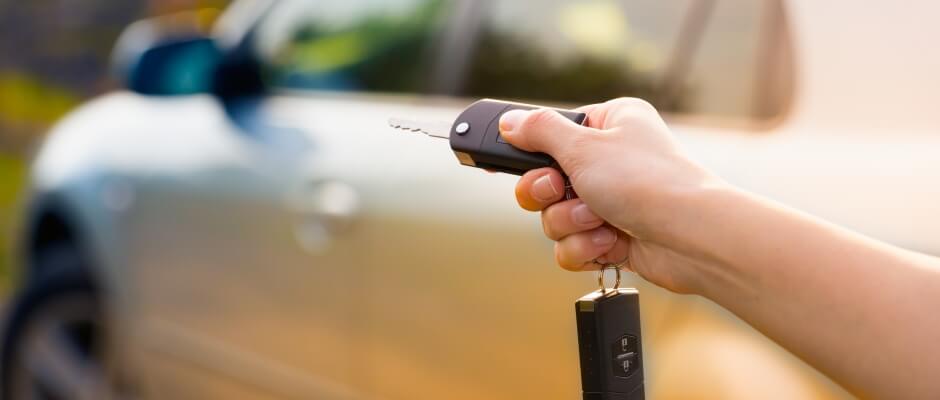If you’re out on the road a lot, it makes sense to have a few items in your car that will come in handy in an emergency. However, there’s no need to weigh your car down with unnecessary items so here is our checklist of the top ten key things to keep in your car:
10. A torch
This is a simple, but very practical item to keep in your vehicle at all times just in case you find yourself stranded at night on a road where there aren’t any street lights. Make sure it works too – keep some spare batteries with it if necessary.
9. Warm clothing
A waterproof jacket will come in handy if it’s raining and your car breaks down, or you need to change a tyre. If you’re stranded overnight, you’ll be grateful for having warm clothing and a blanket that you can use.

8. A map
You can just picture the situation: you’re driving around an unfamiliar place and your sat-nav stops working, or your phone battery dies. Keeping a paper map, such as an A-Z map in your car could save you a lot of hassle if you get lost.
7. Ice scraper
Make sure you’ve always got one of these as it’s crucial for clearing the windscreen and windows in winter.
6. Jump leads
These can get your car started with a dead battery, or will enable you to be a Good Samaritan and help someone else out if their car battery dies!
Did you know…? All vehicle handbooks contain general advice on jump starting your car, and some include techniques that are specific to the model of your car.

5. Spare coolant, oil and windscreen fluid
You should check the fluid levels in car weekly, particularly if you take long journeys on a regular basis. Carrying spare supplies in your car will allow you to top up while away from home. Check out the RAC’s video guides to checking your coolant, oil and windscreen fluid levels for advice on how to do this.
Remember: only check your coolant when the engine is cold as it’s a pressurised system and could scold you if you do it while the engine is hot.
4. Basic toolkit
This doesn’t need to be extensive, but carrying a few basic tools such as screwdrivers, a tyre gauge and a jack will be extremely useful in the event of an emergency.
3. The contact number for your insurance and breakdown companies
Keep a note of the contact numbers for both your insurance and breakdown companies somewhere safe, such as the glove box of your car. Don’t forget to include the emergency contact number if they have one.
Have you got an insurethebox policy? If you need to make a claim, please call our Claims team as soon as possible on 0333 103 0030. If you have Box Road Rescue Cover in addition to your insurance policy, the number to call if you break down is 0844 388 5622.
2. First aid kit
It’s always handy to have a basic first aid kit in your car, just in case you’re involved in an accident or you witness one. Make sure your kit includes bandages, tape and a gauze.
[symple_box color=”gray” text_align=”left” width=”100%” float=”none”] Check out our guide to first aid on the road.[/symple_box]
1. Vehicle handbook
This one’s a no-brainer— you should always keep this in the glove box of your car as it contains everything you need to know about your vehicle.
It might also be a good idea to have:
- A pen and paper – you never know when you might need to jot something down, and these will also come in handy if you’re involved in an accident.
- A spare in-car mobile phone charger so you can call for help in an emergency.
- A bottle of water – if you’re taking a long journey or just stuck in traffic, it’s essential that you stay hydrated while driving.
- A hazard triangle in case you break down, as this warns approaching drivers of an obstruction in the road.
Tip: If you’re driving abroad, it is illegal to drive in certain countries without a warning triangle. Find out more here.
Remember: Never leave valuable items in your car – take them with you or keep them well hidden.
Sources:
https://www.gov.uk/vehicle-maintenance-safety-security/vehicle-maintenance
